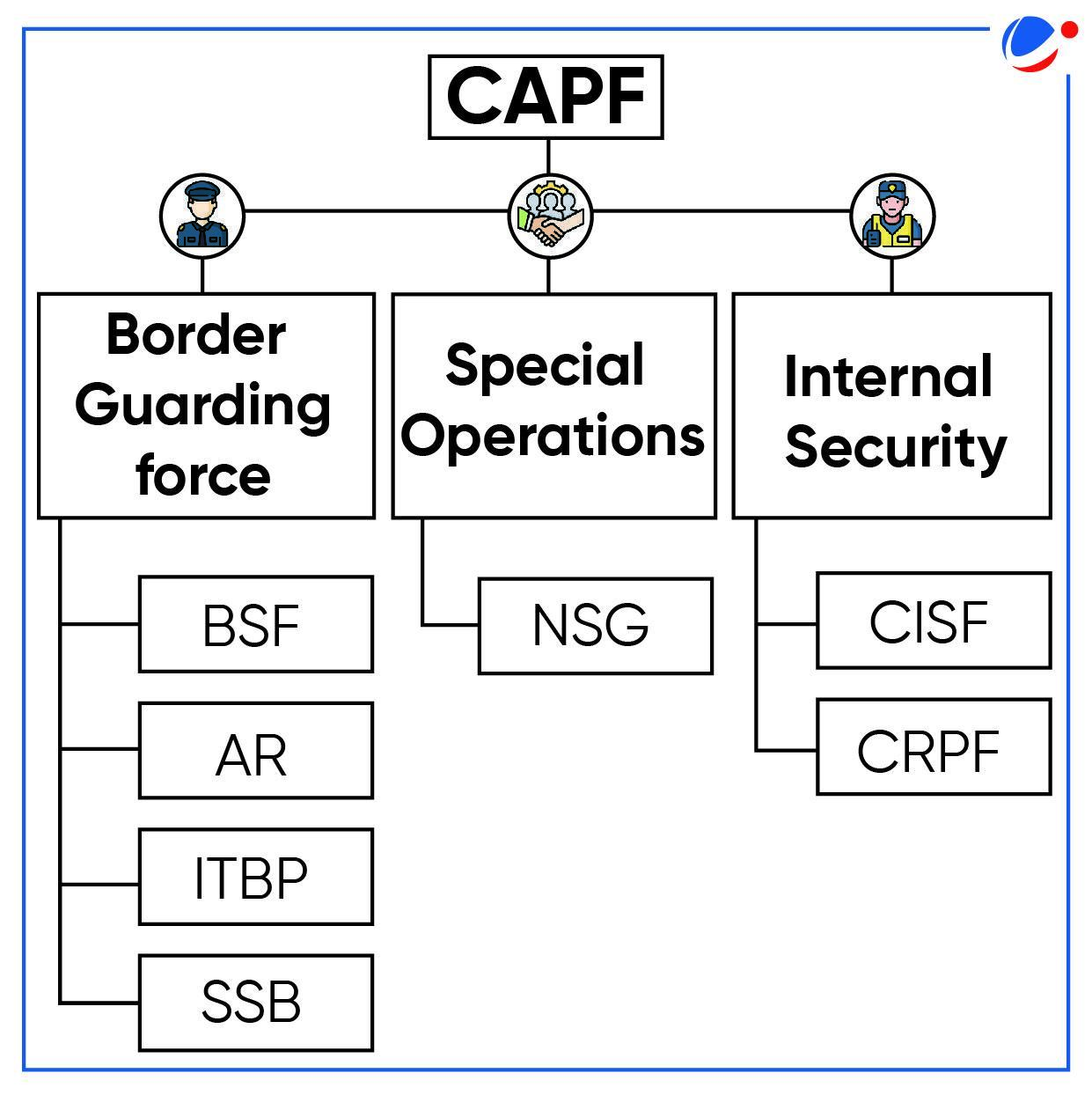Why in the News?
Punjab has filed a suit against the Union government under Article 131 of the Constitution, challenging the decision of increasing the operational jurisdiction of the Border Security Force (BSF) in Punjab.
More about News
- Punjab has challenged the constitutional validity of a notification issued by the Ministry of Home Affairs in October 2021 under Section 139 (1) of the BSF Act, 1968.
- Section 139 (1) of the BSF Act 1968, empowers Centre to publish orders regarding the jurisdiction of BSF in areas adjoining the borders of India.
- The Notification extended BSF's jurisdiction in Punjab, West Bengal, and Assam from 15 Km to 50 Km while reducing it in Gujarat from 80 km to 50 km.
- The 50-Km limit was already in place in Rajasthan.
- The Supreme Court will assess whether the increased jurisdiction surpasses the 'local limits of the area adjoining the borders of India' under Section 139.
- It will also consider the factors that should influence the demarcation of the BSF's jurisdiction in a border area within a state.
Notification Empowering BSF Operations
|
Article 131 in Constitution of India
|
Policing power of CAPF
- The initial delegation of police powers to the Border Security Force (BSF) occurred in 1969 under the provisions of the BSF Act of 1968, with subsequent adjustments being officially notified in 1973 and 2014.
- The Sashastra Seema Bal (SSB), entrusted with guarding the Indo-Nepal border, has also been endowed with the authority of police and other investigating agencies under the Criminal Procedure Code (CrPC).
Importance of border states
|
Rationale behind extension
- Uniformed jurisdictions: Ensuring uniformity in BSF operations across states, therefore enhancing security along the borders.
- Operational Necessity and Policing Efficiencies: Emphasis on the necessity to combat specific crimes like illegal entry and offenses under the Passport Act.
- Addressing Evolving Challenges and Changing Dynamics: Response to emerging challenges near border areas, including instances of drones dropping weapons and drugs.
- Proactive measure to strengthen control and response capabilities against trans-border crimes.
- Information Gathering and Proactive Action: BSF often receives information about crime scenes beyond previous jurisdiction, prompting the need for an extended reach.
Challenges Arising from the Delegation of Police Powers to CAPFs
- Federalism Concerns: Poses a challenge to the federal structure as states argue that law and order, being a state subject, is compromised by the expansion of BSF's jurisdiction.
- Accountability and Sensitivity Issues to local populations: As national accountability mechanisms under the Ministry of Home Affairs (MHA) are inherently less accessible compared to regional accountability mechanisms offered by state police forces.
- Impact on BSF's Core Function: Highlights the potential adverse effects on the core function of the BSF, as the troops deployed on Border Out Posts (BOPs) might have to be withdrawn for operations in depth, impacting border security.
- Risk of Turf Wars: Expresses concerns about the lack of coordination with state police, potentially leading to conflicts due to the concurrent jurisdiction of two forces controlled by different governments.
- Human Rights Violation Apprehensions: Raises apprehensions about increased human rights violations due to the expanded jurisdiction of BSF without adequate safeguards, potentially resulting in the arbitrary use of powers.
Way Forward
- Inclusive Decision-Making: Given India's extensive borders and geopolitical significance, decisions concerning border security must prioritize inclusive decision-making.
- Joint Initiatives for Enhanced Security: This involves enhancing the capacity of police forces and fostering greater cooperation between Central Armed Police Forces (CAPF) and state police.
- Rejuvenation of Federal Communication Channels: Institutional channels of federal communication, such as the Inter-State Council, need to be revitalized to ensure that decisions align with diverse state perspectives.
About Border Security Force (BSF)
Central Armed Police Forces (CAPFs)

Specific Roles and Functions of CAPFs
|



